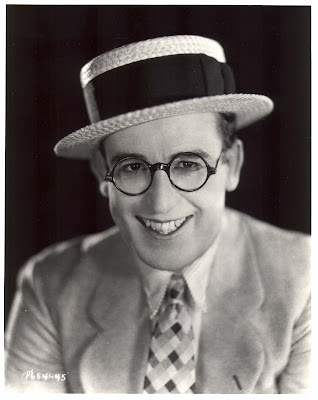There is a two way flow of information between producers of
films and the audiences that they target.
Producers gain feedback from audiences about their films through
audience research. This is often done
through test screenings but increasingly through internet research to see the
responses of bloggers and opinion makers to early marketing and news
surrounding the films. On the other hand
producers use a huge range of marketing techniques to deliver information about
films to their target audience and beyond.
Audience Research
Test Screenings are the most common form of audience
research used by Hollywood
and the film industry as a whole. Often
long in advance of the release of a film, a small audience will be invited to a
secret preview. Effects may not be
completed, the soundtrack may be temporary and the film will sometimes have
barely left the edit suite before it is screened to a few people to gain
feedback from the audience. Questionnaires
or focus groups are used after the film and the audience asked to participate. The audience will be responsible for giving
the filmmakers feedback on what does and doesn’t work and the responses could
lead to drastic changes in the film or the marketing strategy before it is
finally released.
Silent film star Harold Lloyd and producer Hal Roach are
considered to be the pioneers of test screenings. The pair would take early cuts of films to a
theatre to gauge audience response. Directors (and stars) in the early days of
the Hollywood studio system were contracted to work on films the studio wanted
them to and almost certainly had no say over the final cut of the films. In the
case of Should Sailors Marry? (1925),
the ‘director/writer Jess Robbins washed his hands of the picture’ (Sinnott,
2005) after test screenings produced negative responses. Producer Hal Roach got a replacement director
in to re-shoot some scenes and the film was salvaged.
However sometimes it can be the director who wants test
screenings and invites feedback from audiences.
Billy Wilder screened an early cut of his classic Sunset Boulevard (1950) for an audience and was told by a woman in
attendance that "I never saw such a pile of shit in all my life"
(Hennigan, 2003). After attending this
test screening, he chopped the opening and closing scenes due to the audience’s
responses.
Test screenings can be responsible for a huge range of
changes made to a film from a complete re-shooting of the ending all the way
down to just a title change. For example
the title of the Bond film Licence to
Kill
(1989) ‘was initially… Licence
Revoked, but this was changed after test screenings revealed that
US crowds associated the term with driving’ (Radford, 2008).
Many films have had drastic changes made to them at huge
costs. Little Shop of Horrors (1986) was
test screened in front of an audience of families and as a result had a
completely new ending created. Seven (1995), David
Fincher’s bleak serial killer masterpiece, ends with (SPOILER!) the hero’s wife’s severed head delivered to the hero in a
box. The film shows the graphic, gory
aftermath of several severely sickening slayings and was tested in front of an
audience told they would be seeing the new Brad Pitt/Morgan Freeman movie. ‘At the time Freeman was best known for being in Driving Miss Daisy and Pitt for Legends of the Fall. As a result ‘one older woman who
walked out halfway through the movie said, "Whoever made this piece of
filth should be shot"...directly to David Fincher’
(http://www.everything2.org/index.pl?node_id=1316247). Fortunately Pitt and Fincher fought for the depressing
ending and the studio kept it intact, resulting in the film becoming a classic
of the crime genre.
Bleak, uncertain or open endings are often the
casualties of test screenings. Blade Runner (1982), Fatal Attraction (1987) and Australia
(2008) all had different endings to those originally scribbled by the writers
and shot by the directors. Monahan (2008) argues the studio executives
require directors to shoot new endings so that filmgoers will be left ‘with a
collective smile on their faces and therefore, so the logic goes, render the
film more lucrative.’
Some films have benefited greatly from test
screenings including Paranormal Activity
(2007). The footage from
audience test screenings was used in the trailer to show how people were
reacting to the film. See below.
Some critics are fearful that test screenings are damaging
as they can lead to piracy and leaks. Others
are concerned about the demographic that are targeted by the major
studios. ‘‘’Typical'' American
moviegoers get to tell the Hollywood bigs how
to improve their products before they're released. Test-audience members are
often white males, 16 to 32 years old, who are recruited in L.A. suburbs, usually from colleges and
shopping malls’ (Vaughn, 1991). As this
demographic is considered to be the biggest cinema-going audience, studios pay
more attention to what young white males have to say. Therefore films aimed at different
ethnicities, gender and age groups may be affected by the desire to appeal to
the widest audience with the most disposable income.
So, is it fair that audiences and profit-hungry executives
get the final say after filmmakers shed blood, sweat and tears creating the
films? Just remember if you get into a
test screening; the power to change the movies could be in your hands.
An extended version of this article first appeared in MediaMagazine.
Part 2 on Marketing coming soon.
References
What do you think of test screenings? Necessary evil, sensible, fair, terrible, cruel and unusual?










